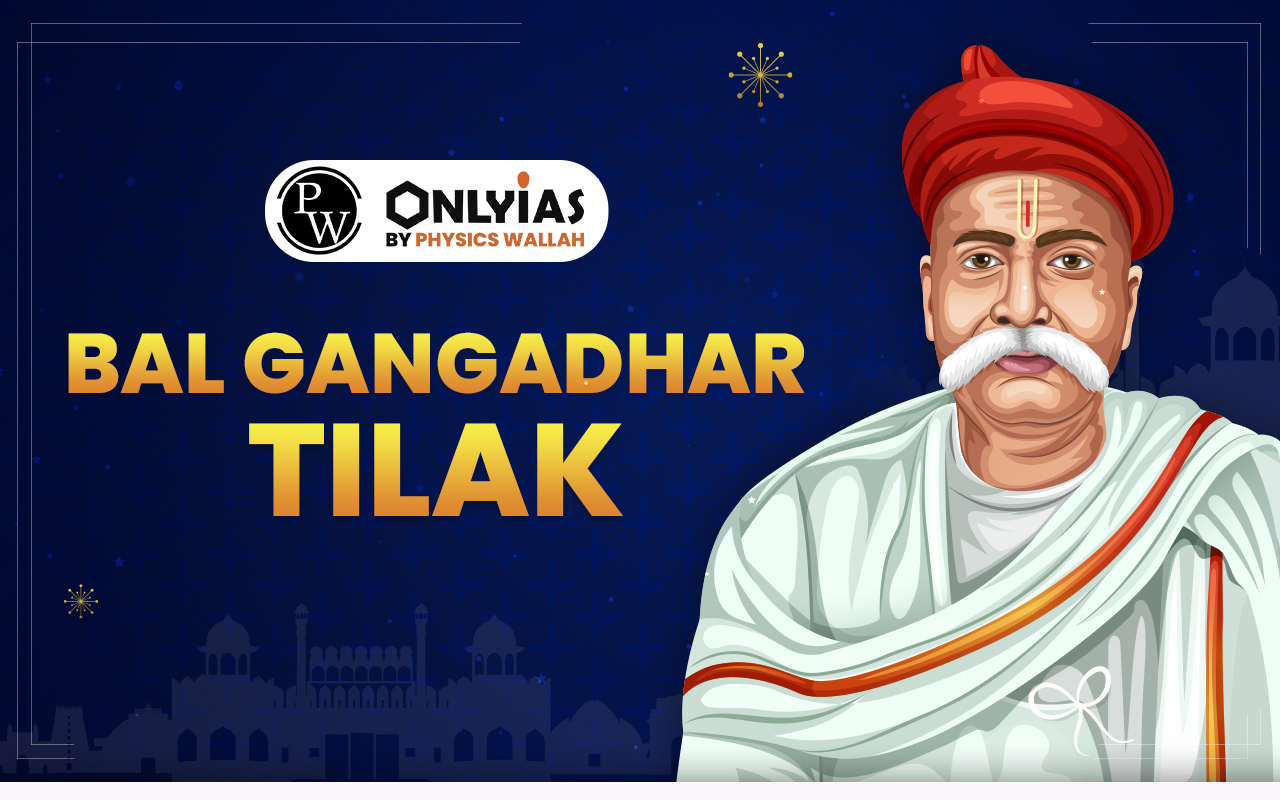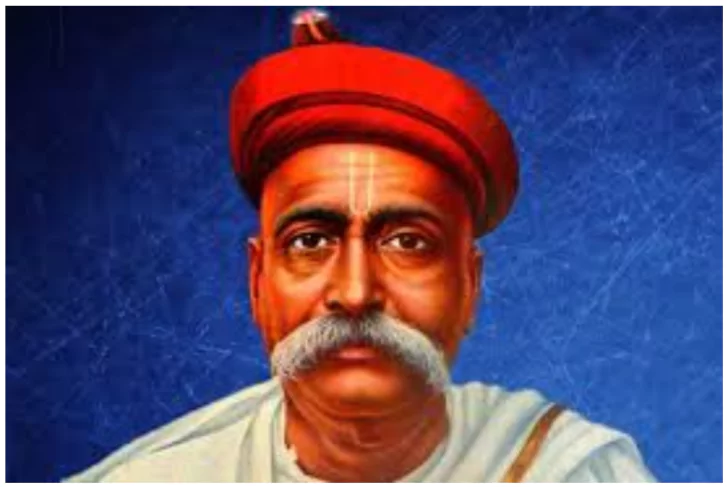Bal Gangadhar Tilak Death Anniversary 2025 was observed on August 1, marking Lokmanya Tilak Punyatithi and honoring his significant contributions to India's freedom struggle.

Lokmanya Bal Gangadhar Tilak Death Anniversary 2025 was observed on Friday, August 1 to commemorate 105 years since the passing of one of India’s most respected freedom fighters.
Bal Gangadhar Tilak was a revolutionary leader who changed the journey of India’s independence movement through his bold actions and powerful words. He was among the first freedom fighters who advocated for Swaraj, meaning self-rule. His efforts in education, journalism, political mobilisation, and cultural reform continue to inspire millions.
List Of International National Days 2025 Month-Wise List
Lokmanya Tilak Punyatithi 2025 was observed on Friday, August 1 to mark the 105th death anniversary of one of India’s greatest freedom fighters. Known as the ‘Father of Indian Unrest’, Tilak ignited the spirit of nationalism with his powerful slogan, “Swaraj is my birthright and I shall have it!” His ideas on swadeshi, education, and unity remain deeply relevant in today’s India.
Bal Gangadhar Tilak was born on July 23, 1856, at Ratnagiri, Maharashtra. He completed his BA degree in Mathematics from the Deccan College in Pune. Further, he joined the Government Law College to pursue an L.L.B degree and completed the course in 1879.

Here are the key highlights of Bal Gangadhar Tilak’ biography:
| Bal Gangadhar Tilak Biography | |
| Particulars | Details |
| Birth Name | Keshav Gangadhar Tilak |
| Popular Title | Lokmanya Bal Gangadhar Tilak |
| Birth Date | July 23, 1856 |
| Birthplace | Ratnagiri, Maharashtra |
| Education | B.A. in Mathematics in 1877
L.L.B in 1879 |
| Passed Away | August 1, 1920, Mumbai |
Bal Gangadhar Tilak was a visionary leader who played a crucial role in India’s struggle for independence. After completing his BA degree, Bal Gangadhar Tilak served as a teacher. Further, he became a journalist.
Tilak was known for uniting traditional Indian values with modern political methods. His fearless advocacy for nationalism, discipline, and belief in India’s self-worth inspired people to rise against colonial rule.
Tilak’s political journey began in the 1880s. He joined the Indian National Congress in 1890. After joining, he quickly emerged as a powerful voice that challenged the party’s moderate stance.
He introduced the idea of Swaraj (self-rule) as every Indian’s birthright. Through public festivals, mass meetings, and his writings in newspapers such as Kesari and Mahratta, he mobilised the public. Because of his strong opposition against British rule, he was imprisoned multiple times. During his political life, he was even titled as “the father of Indian unrest” by British author Sir Valentine Chirol. His spiritual-political work, Gita Rahasya, reinterpreted the Bhagavad Gita as a guide for action and duty toward the nation.
Bal Gangadhar Tilak was a key member of the famed Lal-Bal-Pal trio. Tilak collaborated with Lala Lajpat Rai and Bipin Chandra Pal to form a strong nationalist movement that connected Maharashtra, Punjab, and Bengal.
Lal-Bal-Pal trio together advocated a more bold and self-reliant approach to independence. Through their movement, they popularised Swaraj as a non-negotiable right of every Indian.
Between 1900 and 1908, Bal Gangadhar Tilak emerged as one of its strongest leaders of revolutionary nationalism alongside Lala Lajpat Rai and Bipin Chandra Pal. He introduced a transformative four-point agenda, which included the following:
In addition to the above four-point agenda, Tilak’s contribution to India’s independence can be tracked by:
In 1916, Bal Gangadhar Tilak started the Home Rule League. This step was a response to the British government’s failure to provide self-government even when India supported them in World War I. Additionally, working alongside Annie Besant, Tilak focused on Maharashtra, Central Provinces, Karnataka, and Berar, where he had a strong influence.
After Mandalay’s imprisonment in 1914, the home rule movement was seen as a shift in his strategy for freedom. This movement aimed to favour constitutional methods over confrontation. His League organised multiple public meetings, distributed literature, and recruited members to spread the message of Swaraj (self-rule).
Tilak’s clear, persuasive speeches and mass outreach helped the movement gain momentum. The success of the home rule movement alarmed the Britishers. It also inspired many young Indians to join the freedom struggle.
Bal Gangadhar Tilak faced multiple sedition charges during his political career due to his strong opposition to British rule. He was first arrested in 1897 for a period of 18 months for allegedly inciting hatred through his speeches. The second charge followed in 1908, when his Marathi newspaper Kesari led to a six-year sentence in Mandalay Jail.
Tilak’s third arrest occurred in 1916, when he was accused of promoting self-rule in his speeches. After these legal battles, Tilak chose to adopt more constitutional and peaceful methods of protest. Thus, he rejoined the Indian National Congress.
The birth anniversary of Bal Gangadhar Tilak is celebrated with enthusiasm across India, especially in Maharashtra. Bal Gangadhar Tilak’s birth anniversary 2025 will be celebrated on Wednesday, July 23.
On this day, various government, educational, and cultural institutions honour his legacy. They also spread awareness of his contributions to India’s freedom and social reforms.
Here are the major events that are held to celebrate Bal Gangadhar Tilak Jayanti:
Besides being a political leader, Bal Gangadhar Tilak was also an excellent writer, journalist, and scholar. His writings served as powerful tools for education and inspiration.
Here are his key contributions to the literature:
| Bal Gangadhar Tilak Literary Works | ||
| Newspaper/Book | Language | Purpose & Impact |
| Kesari (1881) | Marathi | Reached common people with accessible political commentary. |
| Mahratta (1881) | English | Targeted educated Indians with articles on politics, strategy, and reforms. |
| The Arctic Home in the Vedas | English | A creative hypothesis that connects ancient Vedic ideas with modern geological science. |
| Gita Rahasya | English | Interprets the teaching of Gita as a call to action and duty. |
| The Orion | English | Attempted to calculate the age of the Vedas using astronomy and textual evidence. |
Bal Gangadhar Tilak passed away on August 1, 1920, in Mumbai. His death was mourned across the nation. On his first death anniversary, Mahatma Gandhi announced the Tilak Swaraj Fund to support the Non-Cooperation Movement. Here are the details of Tilak’s legacy:
| Bal Gangadhar Tilak Legacy | |
| Area | Legacy |
| Nationalism | Inspired mass movement for self-rule |
| Education | Founded Deccan Education Society (1884) |
| Cultural Revival | Used festivals as tools for unity |
| Political Strategy | Paved the way for Gandhian and post-Tilak leaders |
Ready to boost your UPSC 2026 preparation? Join PW’s UPSC online courses today!
Bal Gangadhar Tilak Jayanti in 2025 was celebrated on July 23rd. This date marks the 169th birth anniversary of Bal Gangadhar Tilak, a prominent leader in the Indian independence movement
Bal Gangadhar Tilak started Shivaji Festival in 1895 at Raigad Fort to promote nationalist ideas through songs and speeches.
Bal Gangadhar Tilak started Ganpati Festival in 1894. This event transformed the private worship of Lord Ganesha into a public festival known as Sarvajanik Ganeshotsav.
The four principles of Tilak are Swaraj, Boycott, National Education, and Swadeshi.
Bal Gangadhar Tilak was one of the first prominent freedom fighter who advocated for Swaraj.
Tilak was born on July 23, 1856 in Chikhali village of Ratnagiri district, Maharashtra.
<div class="new-fform">
</div>